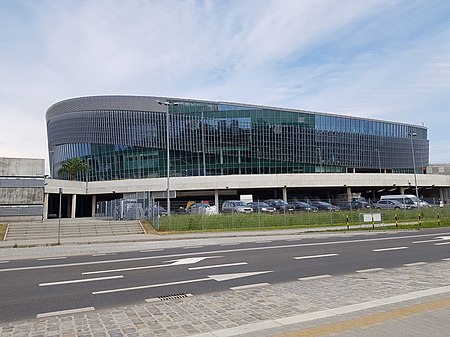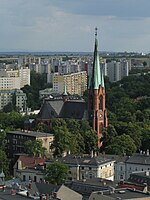Gliwice Arena
Buildings and structures in GliwiceHandball venues in PolandIndoor arenas in PolandSport in GliwiceSports venues completed in 2018

Gliwice Arena is a multi-purpose indoor arena in Gliwice, Poland. It provides 13,752 seats in the stands (with room for up to 17,178 spectators) in the main arena and is considered one of the largest entertainment and sports halls in the country.Initially, the venue was given the name "Podium Hall", which was later changed to "Hala Gliwice". Since opening in May 2018, this name is used interchangeably with the name "Arena Gliwice" which is used for international events.
Excerpt from the Wikipedia article Gliwice Arena (License: CC BY-SA 3.0, Authors, Images).Gliwice Arena
Kujawska, Gliwice Ligota Zabrska
Geographical coordinates (GPS) Address Website Nearby Places Show on map
Geographical coordinates (GPS)
| Latitude | Longitude |
|---|---|
| N 50.285722222222 ° | E 18.686027777778 ° |
Address
Arena Gliwice (Hala widowiskowo-sportowa Gliwice)
Kujawska
44-100 Gliwice, Ligota Zabrska
Poland
Open on Google Maps










